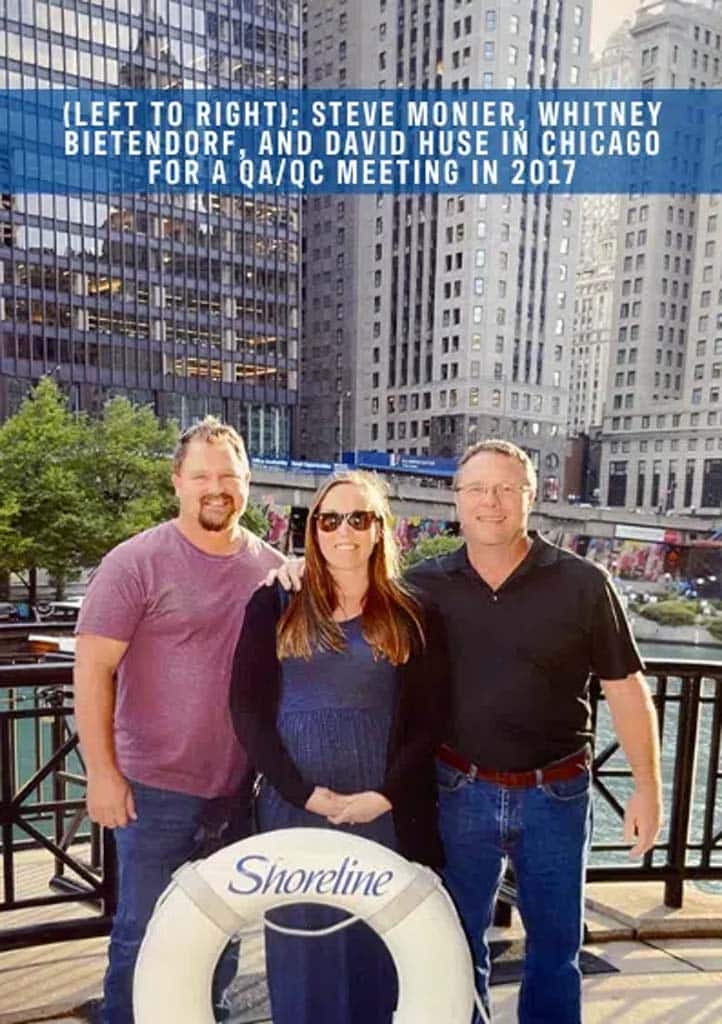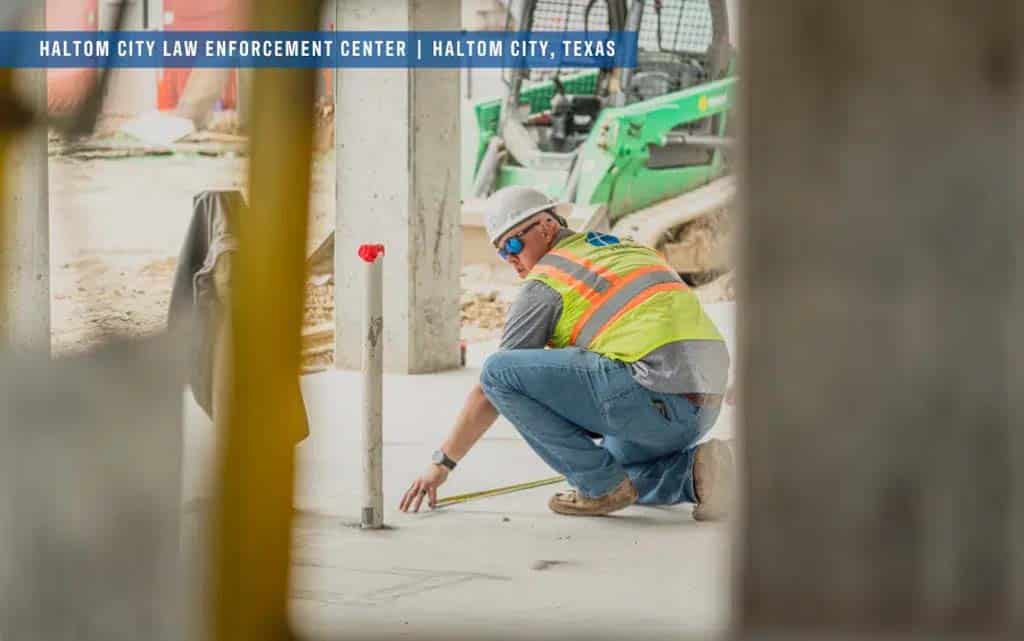Hill & Wilkinson operates by a set of values that define our company, our employees, and the work that we do. One of these values is Quality. Businesses everywhere want to produce a quality product or provide a quality service, but what does that mean for us as a construction company?
In our 55 years in business, we have built a strong reputation as a builder that consistently produces quality projects. Our quality control efforts begin in the design and preconstruction phases and extend to the end of each warranty period. Steve Camp, Executive Vice President of Quality Control, leads the way in H&W’s efforts to excel in quality.
Steve runs our quality control group with a proprietary QA/QC process that coordinates with our Planning for Success Program. This plan lays out an organized process that emphasizes critical tasks at each project milestone. These steps, ensuring that each project team provides the owner with a quality-built project, include compliance with the following:
- Timely inspections, mock-ups, and testing
- Incorporation of quality materials per contract and submittals
- Workmanship within known practices and contract requirements
- Functional performance of materials and equipment after completion
“In 2010, Fritz McKinstry (Hill & Wilkinson co-founder) wanted me to take on quality control to simply make it better,” Steve explained. “H&W employees Whitney Bietendorf, Steve Monier, and David Huse were instrumental in establishing a program and basic practices within our IT-driven Field Work Center. Today, they are still the same practices we started with, along with a few technology advances that have really helped our teams to become better builders.” Steve Monier is currently H&W’s Quality Control Manager, David Huse is VP of Technology, and Whitney Bietendorf is the Engagement Manager.
“I have always loved creating new processes and ways of doing things,” Whitney said, “so when I was asked to be a part of the quality control team at its conception, I was all in.” Whitney was involved with the very early stages of H&W’s Field Work Center, which eventually informed our current QA/QC process. “When we first started creating the Field Work Center, the quality control section we were using was a simple spreadsheet. I would work up a layout design and we would discuss them as a team. It was a lot of trial and error, but David Huse made the design come to life, Steve Monier was extremely helpful on getting feedback from field teams while doing job walks, and Steve Camp, who has a wealth of knowledge about construction, provided us the original checklist items we needed for the system with the superintendents giving us more to continuously add on. It truly was a massive team effort to get where we are today.”
“My favorite part of doing this was getting to collaborate with the field teams,” Whitney continued. “What the system looks like now versus five years ago blows my mind. It just keeps getting better and the only reason for that is because of the collaboration and feedback between the quality control team and superintendents. The end goal of this program has always been to give the project teams the tools to be more efficient and proactive on quality control efforts.”
Executive Vice President, Kirk Woltman was also instrumental in the development of our current Quality Control Program. Kirk’s help in establishing Planning for Success coordinated well with our QC program and provided opportunities to better execute our practices. He sadly passed away in 2021, but his impact on H&W has had a lasting effect.
“One of the great statements Kirk said to me when we teamed up to form the Planning for Success Program was ‘what are the non-negotiables going to be?’” Steve explained. “In other words, what is it that we will expect our teams to do every time so that we don’t fail? Kirk helped us in so many ways.”
“I’ve been to a lot of conferences on planning and scheduling over the last five years,” Steve added. “I believe our Quality Control Program is aligned with the top in the industry. And it would not be where it is today without the great contributions from Whitney, Steve, David, and Kirk. Our construction managers and executive team continue to support us in every way that I’ve ever asked for and more.”
But quality is more than meeting the bare minimum steps; it is intertwined with all aspects of our business, including our other core values. “We have to meet and exceed not just requirements, but expectations also,” Steve said. “It’s a key pillar of the construction business and we have to build with the highest quality – period.” He also stated that quality is important because it involves reputation and safety. “It’s our commitment to what we do,” he added. “It’s the idea of building with excellence from the start versus litigating and blaming others. We can spend time on only post-construction issues, or we can service our clients in preconstruction, construction, and post-construction. A quality failure is only second to a safety failure.”
Our other core values are respect, safety, commitment, training, fun, and community. Steve acknowledged that our value of quality is directly and indirectly related to all of our values. “Just one example of this,” Steve said, “is when, as part of our quality control process, a new project engineer or assistant superintendent receives great training tools in a weekly QC inspection or a trade pre-installation meeting. These planning efforts also lead to better safety; if pre-planning efforts are conducted, then the team is proactively planning how to safely execute the work in advance of the project starting.”
In the end, quality is a core part of everything that we do, whether in the field or in the office. “Quality is a part of not only my job, but everyone’s job at H&W,” Steve said. “Quality documents, proposals, schedules, QC inspections, safety inspections – it’s at the core of what everyone does at H&W. If a quality product is not produced from the very beginning, it will potentially lead to a lack of quality in the field. The field is where everything is revealed in our business; it’s the end result.”


